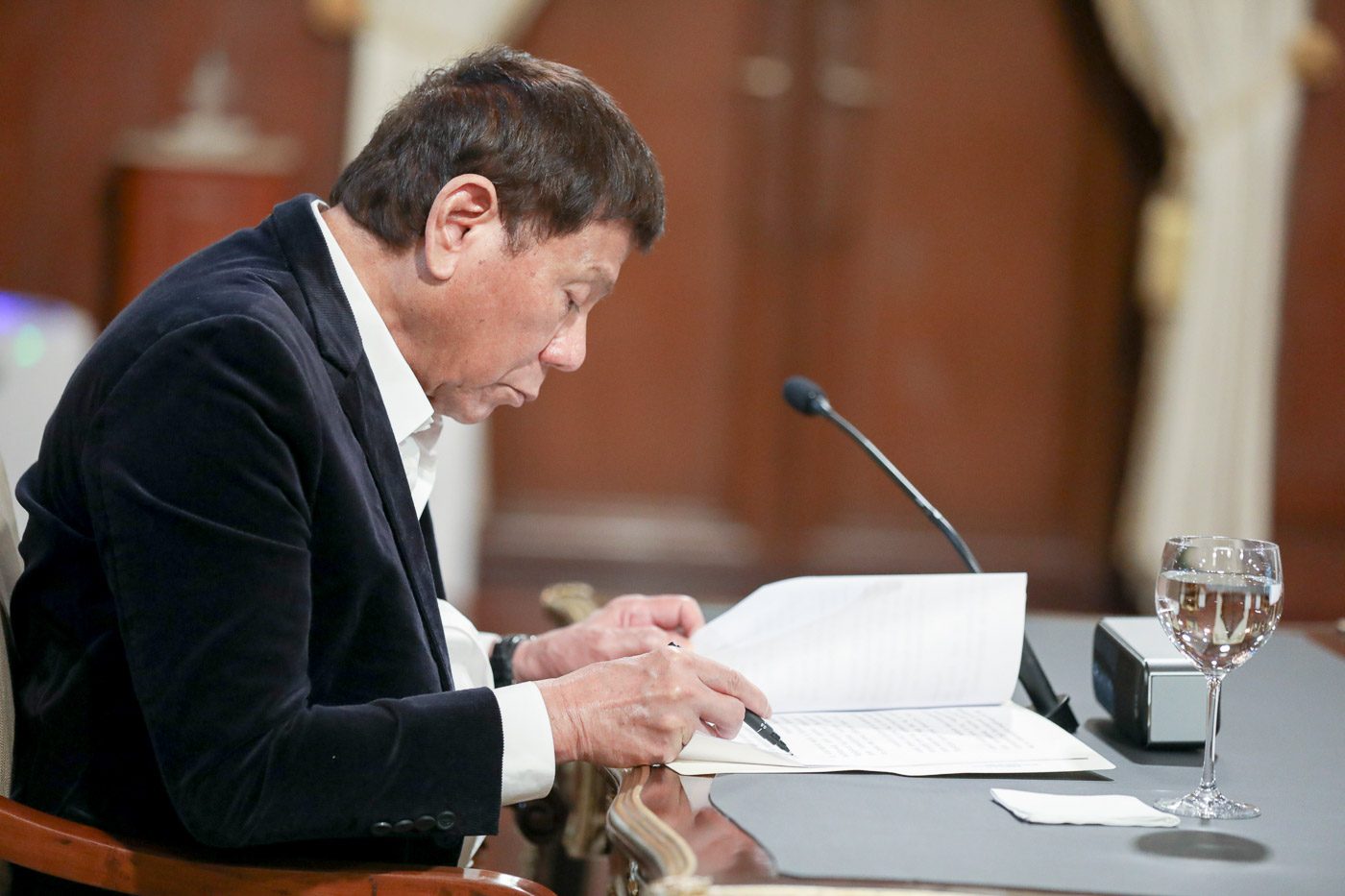SUMMARY
This is AI generated summarization, which may have errors. For context, always refer to the full article.

President Rodrigo Duterte will still not allow the government to cooperate with the International Criminal Court (ICC) if it decides to launch a formal probe into his drug war – even after the Supreme Court affirmed the Philippines’ obligation to do so.
Presidential Spokesperson Harry Roque, on Thursday, July 22, dismissed the High Court’s remarks as obiter dictum, or a reflection or an opinion made by a justice that does not set a precedent, or is not necessarily legally binding.
“It is on the side, it is not on the merits, it is not the main ruling of the Court, and we are not, of course, in any way concerned about that obiter,” he said during a Malacañang news briefing.
He added that the Supreme Court’s remarks will not change Duterte’s determination not to cooperate with the ICC.
“No change, no change because that’s obiter and petition dismissed,” he said, referring to the main decision of the Supreme Court to junk petitions questioning the withdrawal of the Philippines from the ICC because the issue has become moot and academic.
However, Roque’s former law firm colleague, law professor Rommel Bagares, insists that the Court’s remarks are not obiter dictum “but part of the key holdings of the Court.”
Affirmation of Rome Statute
But whether or not it is obiter, the Supreme Court affirmed the Rome Statute provision that Duterte refused to acknowledge.
The Supreme Court said the Philippine government “shall not be discharged from any criminal proceedings” even if it withdrew from the ICC and that “whatever process was already initiated before the International Criminal Court obliges the state party to cooperate.”
The High Court was thus affirming Article 127 of the Rome Statute, the treaty which created the ICC. This article states that a state’s withdrawal “shall not affect any cooperation with the Court in connection with criminal investigations and proceedings in relation to which the withdrawing State had a duty to cooperate and which were commenced prior to the date which the withdrawal became effective.”
This means that the Supreme Court refuted Duterte’s stance that the Philippines does not need to cooperate with the ICC because it has already withdrawn from it, and that Article 127 does not apply because the Rome Statute was void to begin with.
Asked if this contradiction of the Supreme Court to Duterte’s own position holds any weight for Malacañang, Roque said, “Pia, I’ve answered you, you’re debating, and let’s not debate.”
The ICC pre-trial chamber is set to decide in the coming months if it will formally open an investigation into Duterte’s anti-illegal drugs campaign, after then-ICC chief prosecutor Fatou Bensouda said there is basis to believe crimes of humanity were committed in its implementation.
Meanwhile, Duterte has said he may run for vice president in the 2022 elections in order to be immune from suit. – Rappler.com
Add a comment
How does this make you feel?


![[Closer Look] Homophobic frenzy diverts attention from POGO dangers](https://www.rappler.com/tachyon/2024/06/harry-roque-homophobia-targt-pogo-june-18-2024.jpg?resize=257%2C257&crop_strategy=attention)




![[Vantage Point] The PDEA leaks](https://www.rappler.com/tachyon/2024/05/vantage-point-pdea-probe.jpg?resize=257%2C257&crop=255px%2C0px%2C720px%2C720px)
![[Edgewise] How Duterte can elude ICC arrest](https://www.rappler.com/tachyon/2024/05/thought-leaders-How-Duterte-elude-icc-arrest.jpg?resize=257%2C257&crop=272px%2C0px%2C720px%2C720px)




There are no comments yet. Add your comment to start the conversation.